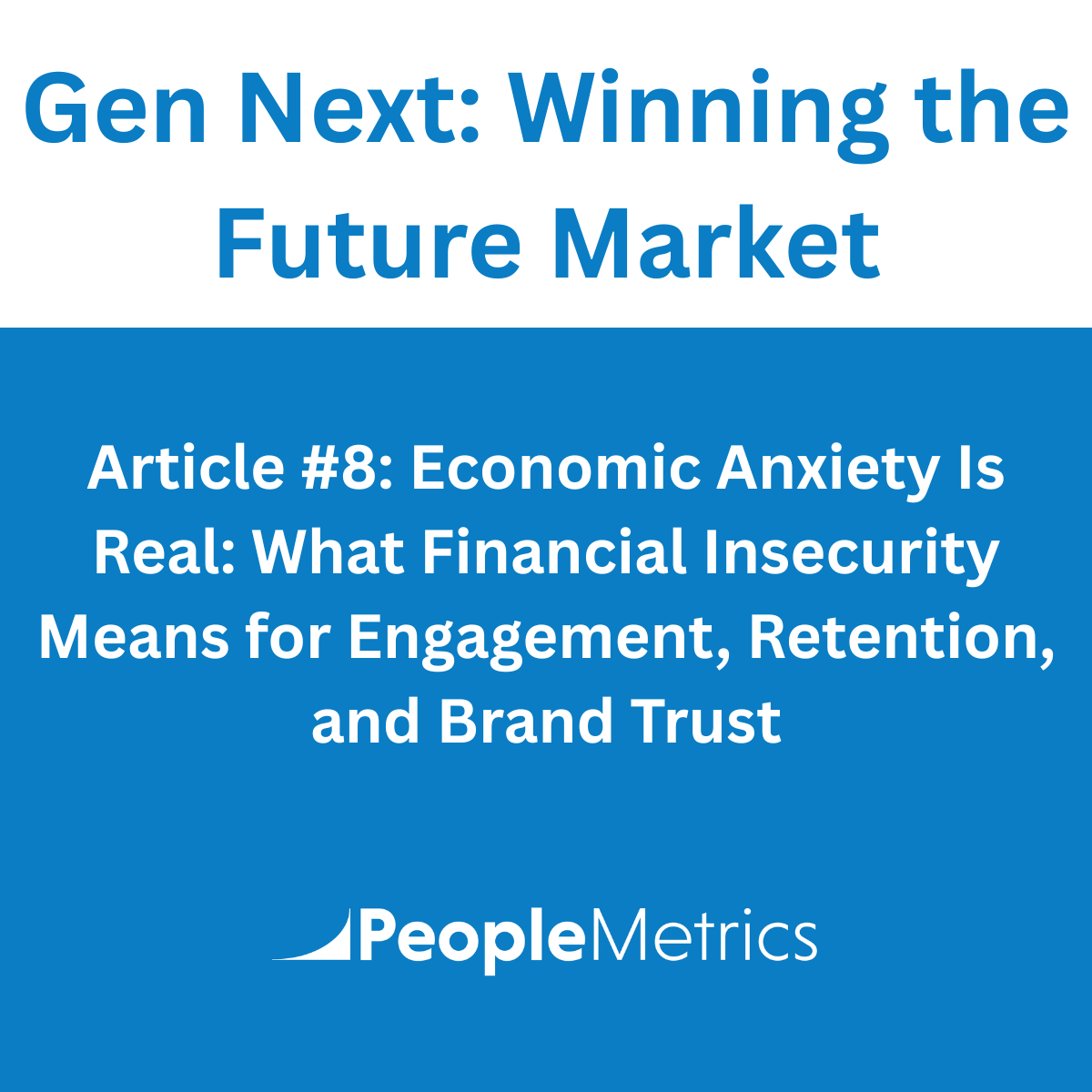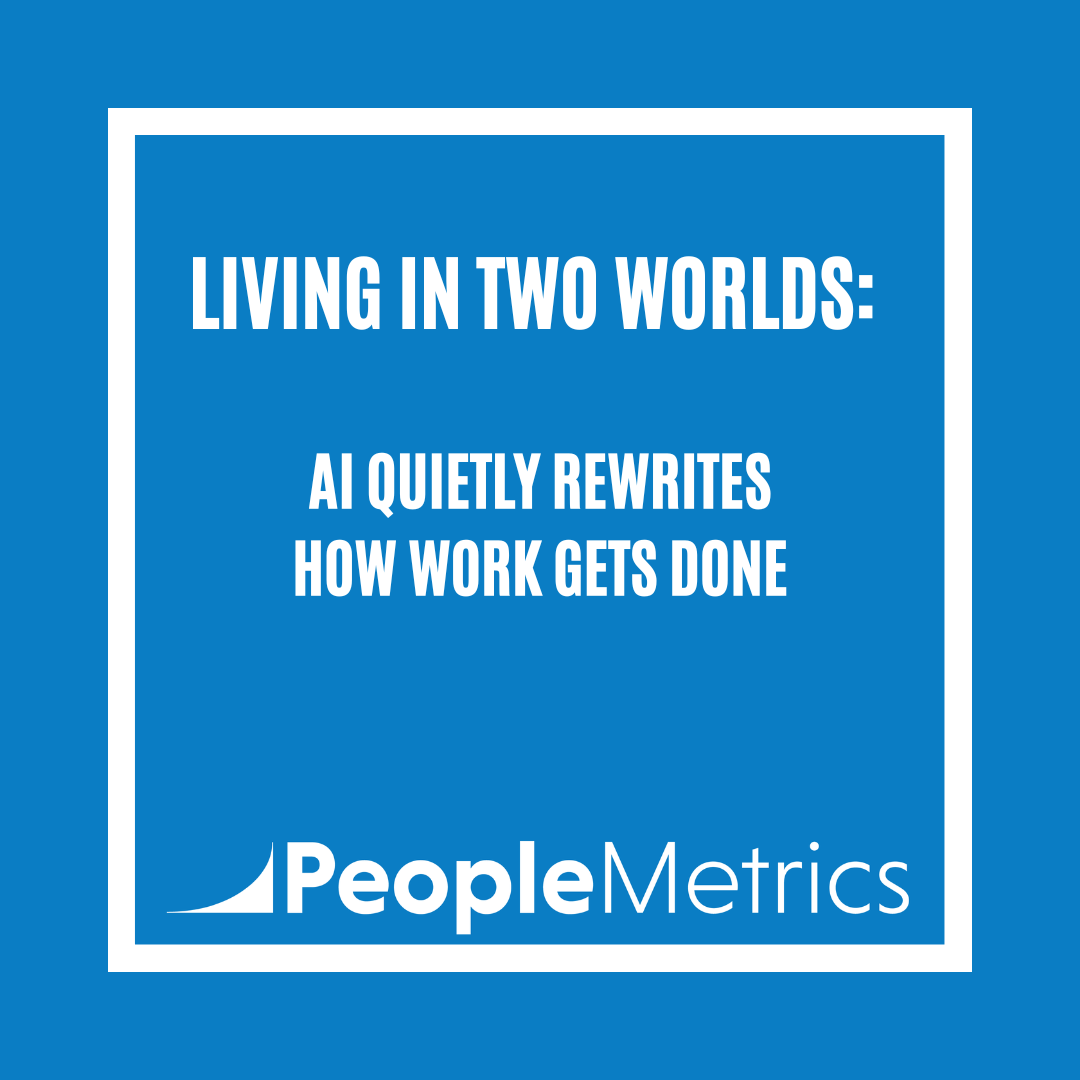Gen Z and Millennials are optimistic, ambitious … and quietly exhausted by money stress.
On the surface, younger generations look confident. They’re building personal brands, launching side hustles, embracing tech/AI, and pushing for change.
But underneath that hustle is a harder truth: They’re carrying more financial anxiety than any generation before them at the same age.
According to the 2025 Deloitte Gen Z and Millennial Survey:
- 51% of Gen Zs and 45% of Millennials say they feel financially insecure
- Nearly 50% say they live paycheck to paycheck
- Only 27% of Gen Zs and 30% of Millennials feel optimistic about their long-term financial future
- And a growing number say economic pressure is harming their mental health, motivation, and loyalty
This anxiety reshapes everything, from how they engage with work to how they decide what brands are worth their money or trust.
- They scrutinize every dollar and every brand promise.
Insecurity breeds discernment. These generations are hyper-aware of costs, value, and credibility. They don't fall for hype. They want proof.
Implication: Be transparent about value. Show how your product, service, or job opportunity fits into their financial reality, not a fantasy.
- They don’t just want fair pay; they want financial empowerment.
Raises aren’t enough. Gen Z and Millennials want tools, education, and support to build financial resilience. They value employers and brands that help them grow, not just survive.
Implication: Offer education, flexibility, and policies that acknowledge their financial pressures (e.g., student loan support, side gig flexibility, cost-conscious product tiers)
- Financial stress is driving disengagement.
According to Deloitte, money is one of the top three causes of stress among younger workers and it's directly linked to lower engagement, mental health challenges, and high attrition.
Implication: Address financial wellbeing holistically through culture, communication, benefits, and empathy. A raise without support still feels like a risk.
- Trust is fragile and tied to perceived stability.
When money is tight, loyalty follows reliability. Younger generations are more likely to disengage from brands and employers that feel opportunistic, inconsistent, or indifferent.
Implication: Consistency builds trust. So does honesty about economic challenges, your own and theirs. When in doubt, over-communicate with empathy.
Bottom Line:
Gen Z and Millennials aren’t lazy.
They’re financially stretched and deeply aware of it.
They’re trying to build stable lives in an unstable world.
If you want their engagement, their loyalty, and their trust, you have to meet them there.
That means less flash and more substance.
Less “selling” and more support.
What’s Next: The Final Word
Up next, we’re bringing it all together.
Even if you didn’t read any of the first eight posts, don’t miss this one! It’s a punchy, must-read summary of everything Gen Z and Millennials expect from the brands they buy from, the leaders they work for, and the experiences they say yes to.
The Experience Generation: What Gen Z and Millennials Expect (That Most Brands Still Don’t Get)
Coming soon.





